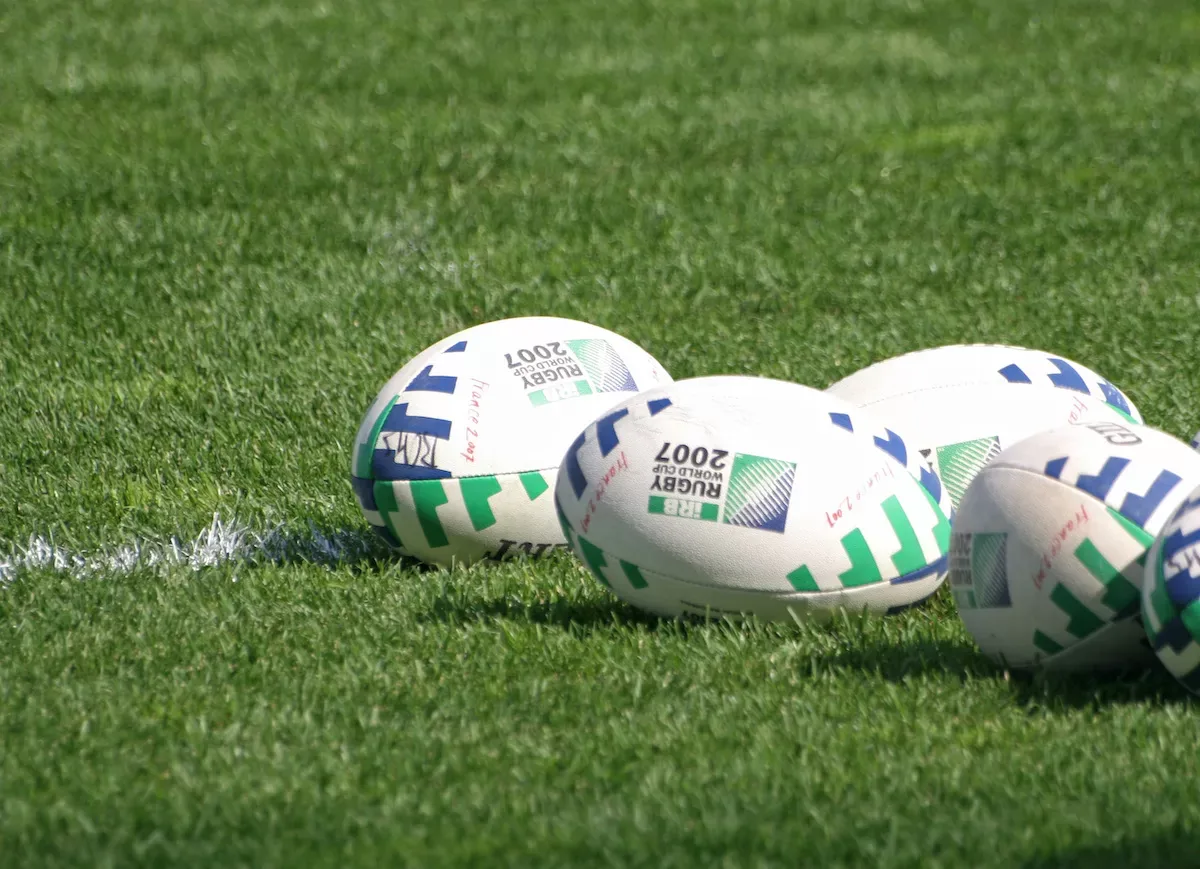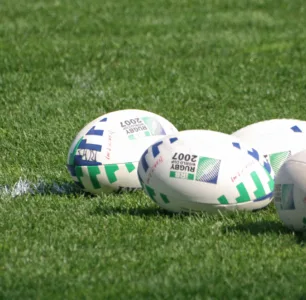Rugby is a thrilling and physically demanding sport that has captured the hearts of millions around the world. If you’re new to the game and eager to get started, one essential item you’ll need is a rugby ball. But with so many options available, how do you choose the right one? In this comprehensive guide, we’ll walk you through everything you need to know about buying rugby balls, from understanding the different sizes to selecting the right material. Let’s dive in!
Choosing the Right Size
One of the first considerations when buying a rugby ball is its size. Rugby balls come in various sizes to accommodate players of different ages and skill levels. The size you choose will impact your ability to grip, pass, and kick the ball effectively. Here are the standard sizes for rugby balls:
- Size 3: This is the smallest rugby ball and is primarily used by children under the age of 7. It is lightweight and easier for young players to handle and control.
- Size 4: The size 4 rugby ball is suitable for players between the ages of 8 and 14. It is slightly larger than the size 3 ball and offers a good balance between grip and handling.
- Size 5: The size 5 rugby ball is the standard size used in adult rugby. It is larger and heavier than the size 4 ball, providing better stability and control during gameplay. If you’re a beginner or an adult player, this is the size you should opt for.
Understanding the Material
Rugby balls are typically made from a combination of synthetic materials or genuine leather. The choice of material affects the ball’s durability, grip, and performance. Let’s take a closer look at the two primary materials used in rugby balls:
- Synthetic Material: Synthetic rugby balls are made from materials such as rubber, PVC, or polyurethane. They are more affordable than leather balls and offer better water resistance, making them suitable for wet weather conditions. Synthetic balls also require less maintenance and can withstand rougher play.
- Leather: Leather rugby balls have a traditional feel and are favored by professional players. They are made from genuine leather, usually cowhide, and offer superior grip and handling. Leather balls require more care and regular maintenance to keep them in optimal condition. They are more expensive than synthetic balls but are known for their durability and performance.
Considering the Playing Surface
Another important factor to consider when buying a rugby ball is the playing surface. Rugby can be played on various surfaces, including grass, artificial turf, or even indoor courts. The type of surface you’ll be playing on will determine the ideal ball construction. Here are a few considerations:
- Grass: If you primarily play on natural grass fields, both synthetic and leather balls are suitable. Leather balls offer better grip on grass surfaces, but they may wear out faster if exposed to wet or muddy conditions. Synthetic balls, on the other hand, are more durable and resilient to adverse weather.
- Artificial Turf: Artificial turf, commonly found in modern rugby fields, can be abrasive and cause faster wear and tear on leather balls. Synthetic balls are designed to withstand the rigors of artificial turf, making them a better choice for these surfaces. They also provide good grip and control.
- Indoor: If you play rugby in an indoor facility or on a court, a soft-touch rugby ball is recommended. These balls have a foam or sponge-like outer layer that ensures a softer impact and reduces the risk of injury in confined spaces.
Additional Features and Considerations
In addition to size, material, and playing surface, there are a few other features and considerations that can influence your decision when buying a rugby ball. Let’s explore them:
- Grip: A good grip is crucial for handling and passing the ball accurately. Look for a ball with a textured surface or raised pimples for enhanced grip, especially in wet conditions.
- Inflation and Shape Retention: Ensure the rugby ball you choose has good inflation and shape retention properties. It should maintain its shape and bounce even after frequent use.
- Brand and Quality: Opt for reputable brands known for producing high-quality rugby balls. They are more likely to meet official regulations and provide a reliable playing experience.
- Budget: Consider your budget when buying a rugby ball. While leather balls tend to be more expensive, they offer better performance and durability. Synthetic balls, on the other hand, are more affordable and suitable for beginners or casual players.
Caring for Your Rugby Ball
To ensure the longevity of your rugby ball and maintain its performance, proper care is essential. Here are some tips to keep in mind:
- Cleaning: Clean your rugby ball after each use with a damp cloth or sponge. Avoid using abrasive cleaners or submerging the ball in water.
- Storage: Store your rugby ball in a cool, dry place away from direct sunlight. Extreme temperatures and exposure to sunlight can damage the ball’s material.
- Inflation: Keep your rugby ball properly inflated according to the manufacturer’s guidelines. Overinflating or underinflating the ball can affect its shape and performance.
- Maintenance: Check the condition of your rugby ball regularly. Replace it if you notice significant wear and tear or if it no longer meets the necessary standards for gameplay.
Popular Brands
Armed with this beginner’s guide to buying rugby balls, you are now equipped to make an informed decision and choose the right ball for your needs. Remember to consider the size, material, playing surface, and additional features before making your purchase. With the perfect rugby ball in hand, you’ll be ready to step onto the field and experience the thrill of this incredible sport. So go ahead, get out there, and let the games begin!
When it comes to buying rugby balls, there are several popular brands known for their quality and performance. These brands have established themselves as reliable manufacturers in the rugby community. Let’s take a look at some of the most popular rugby ball brands:
- Gilbert: Gilbert is a renowned brand that has been producing rugby balls for over a century. They are the official ball supplier for various rugby unions and tournaments worldwide, including the Rugby World Cup. Gilbert offers a wide range of rugby balls suitable for different levels of play, from training balls to match-quality balls.
- Mitre: Mitre is another well-known brand in the rugby world. They have a strong presence in both professional and grassroots rugby. Mitre rugby balls are highly regarded for their quality, durability, and grip. The brand offers a diverse selection of balls designed to cater to various playing conditions and player preferences.
- Adidas: Adidas, a global sports brand, is also involved in rugby ball manufacturing. They produce high-quality rugby balls that are favored by players at all levels. Adidas rugby balls are known for their excellent grip, durability, and consistent performance.
- Canterbury: Canterbury is a brand that specializes in rugby equipment and apparel. They offer a range of rugby balls suitable for training and match play. Canterbury rugby balls are designed to meet the demands of the sport, providing good grip and durability.
- Optimum: Optimum is a brand that focuses on rugby equipment and has gained popularity among players. Their rugby balls are designed with durability and performance in mind, making them suitable for training and matches.
- Rhino: Rhino is a brand that manufactures rugby equipment, including rugby balls. Their balls are known for their durability and performance, making them a popular choice among players of all levels.
- Kooga: Kooga is a brand that has a strong presence in the rugby market. They produce a range of rugby balls designed to meet the needs of players at different skill levels. Kooga rugby balls are known for their quality construction and grip.
When purchasing a rugby ball, it’s important to consider your specific needs and preferences. These popular brands offer a wide variety of options, ensuring that you can find a ball that suits your playing style and requirements. Remember to check for official certifications and choose a ball that meets the necessary standards for gameplay.
Get Ready to Play!
Armed with this beginner’s guide to buying rugby balls, you are now equipped to make an informed decision and choose the right ball for your needs. Remember to consider the size, material, playing surface, and additional features before making your purchase. With the perfect rugby ball in hand, you’ll be ready to step onto the field and experience the thrill of this incredible sport. So go ahead, get out there, and let the games begin!

